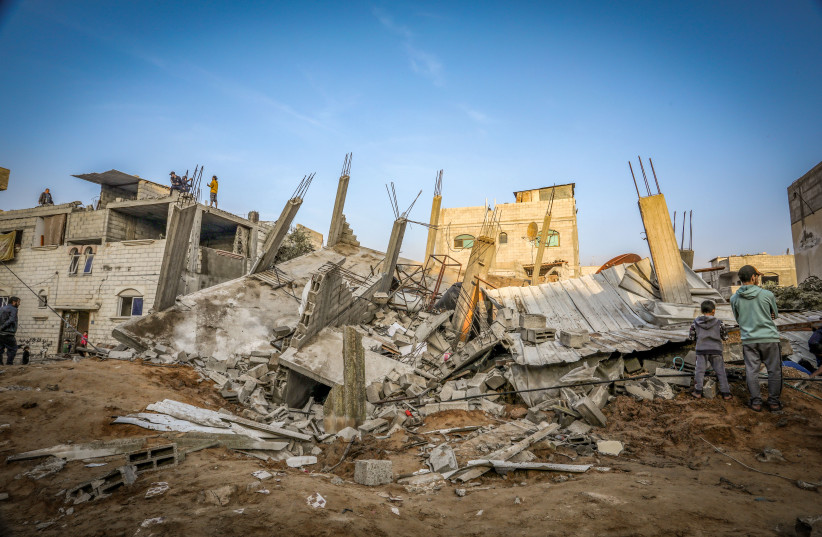Following reports of the polio virus’s presence in the Gaza Strip, the IDF conducted sampling tests in several areas where contaminated water had left behind polio virus remnants.
As a result of the findings, the IDF decided, in coordination with the health ministry, to vaccinate the ground troops against the virus to maintain the health of IDF soldiers and Israeli citizens.

Currently, the head of the Coordination of Government Activities in the Territories (COGAT), Maj.-Gen. Rasan Elian, is in contact with the international community to allow the introduction of additional polio vaccine doses to residents of Gaza.
What is polio?
Polio is an infectious disease caused by an intestinal virus called polio, which belongs to the “enterovirus” family of viruses that enter the body through the mouth and are excreted in the feces.
How was the virus found?
The health ministry monitors Israel’s sewage systems to detect infectious diseases, including COVID-19. High levels of the polio virus have not been detected since the last outbreak in 2013.
In 2022, some cases of polio infection were discovered in the Jerusalem area among the ultra-Orthodox population, many of whom do not receive vaccinations, following which the health ministry began supplementing vaccinations.
However, the most recent data shows that vaccination coverage in Israel is not uniform, with some populations remaining unvaccinated, primarily in the areas of Jerusalem, Beit Shemesh, and the Bedouin sector.
Who is in danger of being infected?
A baby under the age of two months cannot be vaccinated. Children under the vaccination age, immunodeficient people, and those whose prior vaccinations have weakened for various reasons have not received the required vaccinations.
What is the difference between a polio carrier and a polio patient?
A vaccinated individual can become infected and even spread the disease to others without actually catching it. A patient is someone who, as a result of the disease, suffers from polio. Only one in 1,000 infected people will get the disease.
How does one get infected by polio?
The virus, found in food or contaminated hands, enters the body through the mouth.
What are the symptoms?
In over 90% of infections, the virus causes no symptoms. About 10% of cases have transient symptoms, including high fever, headaches, and muscle weakness. In one percent of cases, the virus penetrates the nervous system and causes paralysis, usually in the legs. In even rarer cases, the virus causes paralysis of the respiratory muscles and death.
How can infection be prevented?
Vaccination is the most effective method. Another important measure is washing one’s hands with soap and water for about a minute after leaving the toilet, before touching any food, and after changing a baby’s diapers.
What vaccines exist in Israel against polio?
There are two types of vaccines. At the ages of two months, four months, six months, one year, and in the second grade, individuals receive the first type of vaccine, an inactivated one known as IPV. In the event of an outbreak, a live, attenuated vaccine called OPV is given in two oral drops. Despite the discovery of virus remnants in Gaza’s sewage water in Israel, no outbreak has occurred.
Who will be vaccinated now?
The IDF and the health ministry decided to vaccinate the regular and reserve soldiers entering Gaza. There is no vaccination requirement for families of combatants in Gaza.
My son is a combat soldier and received the polio vaccine. Should the family members be careful?
No, the vaccine he received contains virus particles that do not cause a disease.
What are the side effects of the vaccine?
The side effects of vaccinations, if any, are mild and pass within a few hours to days. They include pain or redness in the injection area, slight fever, and fatigue.
Is it possible to get vaccinated privately for a fee?
No, and there is no need for it. The health ministry provides the vaccines free of charge to anyone who has not yet been vaccinated.
I fear the polio vaccine in my body has weakened, should I be vaccinated?
In exceptional cases, a blood test known as “polio serology” can check the level of anti-polio antibodies in the body. However, the test is not required by law.
Should water be boiled?
Israel has no instructions to boil water because it’s safe to drink.. Furthermore, the virus is usually found in sewage and not in drinking water.
